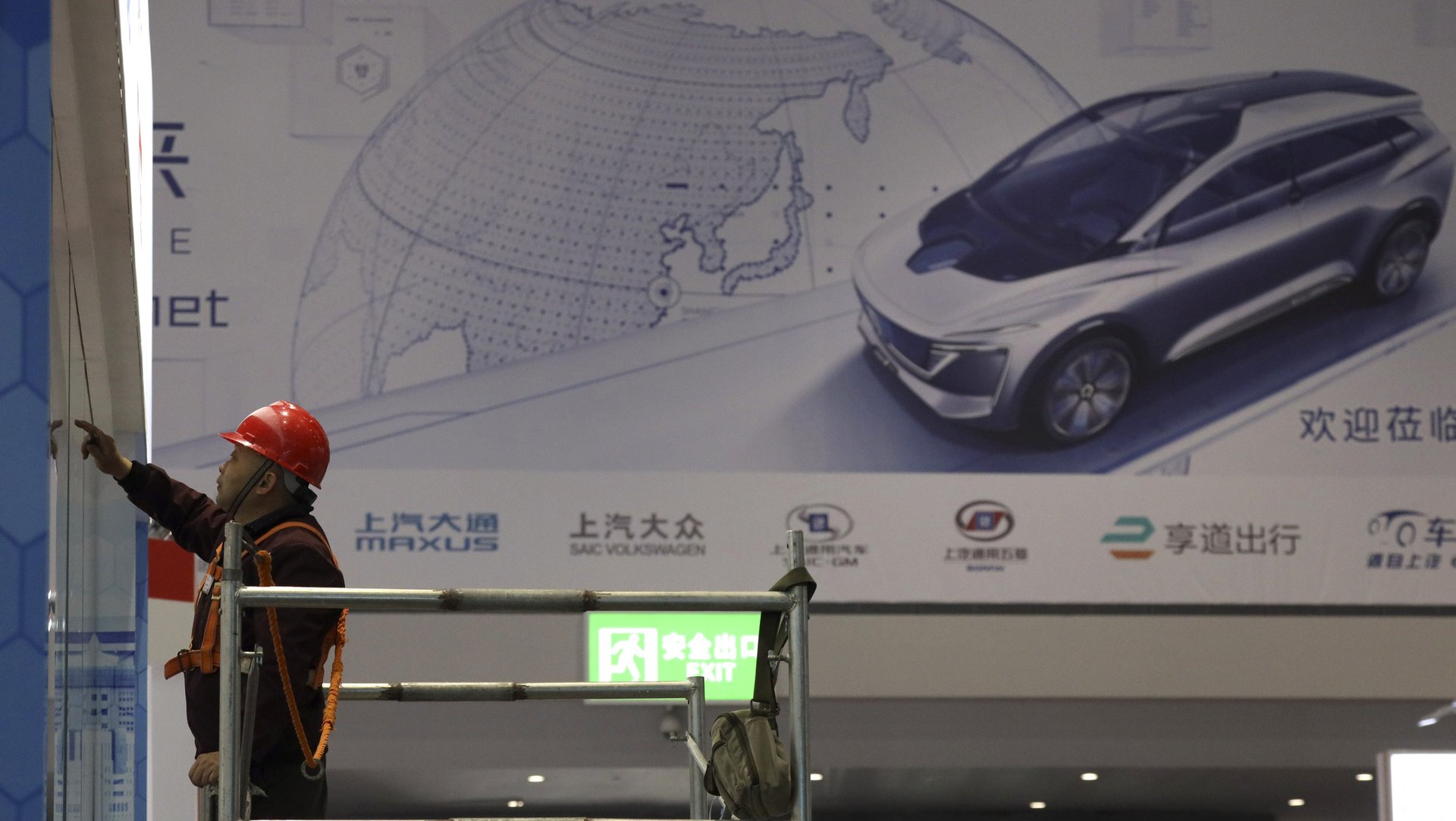Venture capital to China’s electric vehicle startups has dropped nearly 90%
Venture capitalists aren’t in love with China’s electric car industry anymore.


Venture capitalists aren’t in love with China’s electric car industry anymore.
Venture capital investment into China’s electric vehicle companies dropped nearly 90% from $6 billion by the middle of June last year, to just $783 million in the same period this year, according to data from Seattle-based research company PitchBook.
VC investments to EV startups climbed rapidly since 2014, when a slew of heavily hyped electric car startups emerged thanks to China’s massive subsidy support of the industry. That surge just might have peaked, however, at $7.7 billion in 2018.
Last year saw several high-profile investments in electric-vehicle startups. Guangzhou-based Xpeng Motors, backed by e-commerce giant Alibaba, completed a $580 million funding round last August, reaching a valuation of $3.6 billion even though it hadn’t begun delivering its compact G3 SUV yet. It’s since made 10,000 of them and delivered 5,500 units (link in Chinese).
Byton, a Nanjing-based carmaker, secured $500 million last June, with backing from state-owned carmaker First Automobile Work Group and the world’s largest electric-car battery maker Contemporary Amperex Technology, better known as CATL.
This year investors appear more pessimistic—and with good reason. Beijing’s cutting subsidies to electric vehicle makers by half starting next week. The expectation of subsidies going away drove sales to double-digit growth at the end of 2018, but they’ve slowed in recent months. Sales of new electric vehicles, which include pure electric and hybrid plug-ins, grew just 2% in May, compared with a year earlier.
A number of EV makers are nevertheless still trying to raise funds privately, given the environment isn’t very favorable for a listing, especially for those who haven’t delivered any cars yet.
Li Xiang, a co-founder of the hybrid carmaker CHJ Automotive warned in April that the fundraising window for startups will close within a year (link in Chinese), after which a number of them will fail, with “90% of investors” losing their money. ”We only have one chance to play,” he said. Still, CHJ appears to be lucky—Wang Xing, the founder of Meituan, one of China’s most popular food delivery platforms, could invest as much as $285 million into CHJ.
Another EV maker, WM Motor, has already closed a $450 million round with backing from the search giant Baidu in March. The company has delivered around 4,000 units (link in Chinese) of its electric EX5 SUV in the first quarter of 2019.
Support from the state played a major role in driving the VC craze—perhaps Beijing will step in to keep some of the newer players in the game. That appeared to be what happened with NIO, which last month got what looked an awful lot like a bailout from a state-run firm.
Looking for more in-depth coverage? Sign up to become a member and read more in-depth coverage of China’s electric-car boom in our field guide.